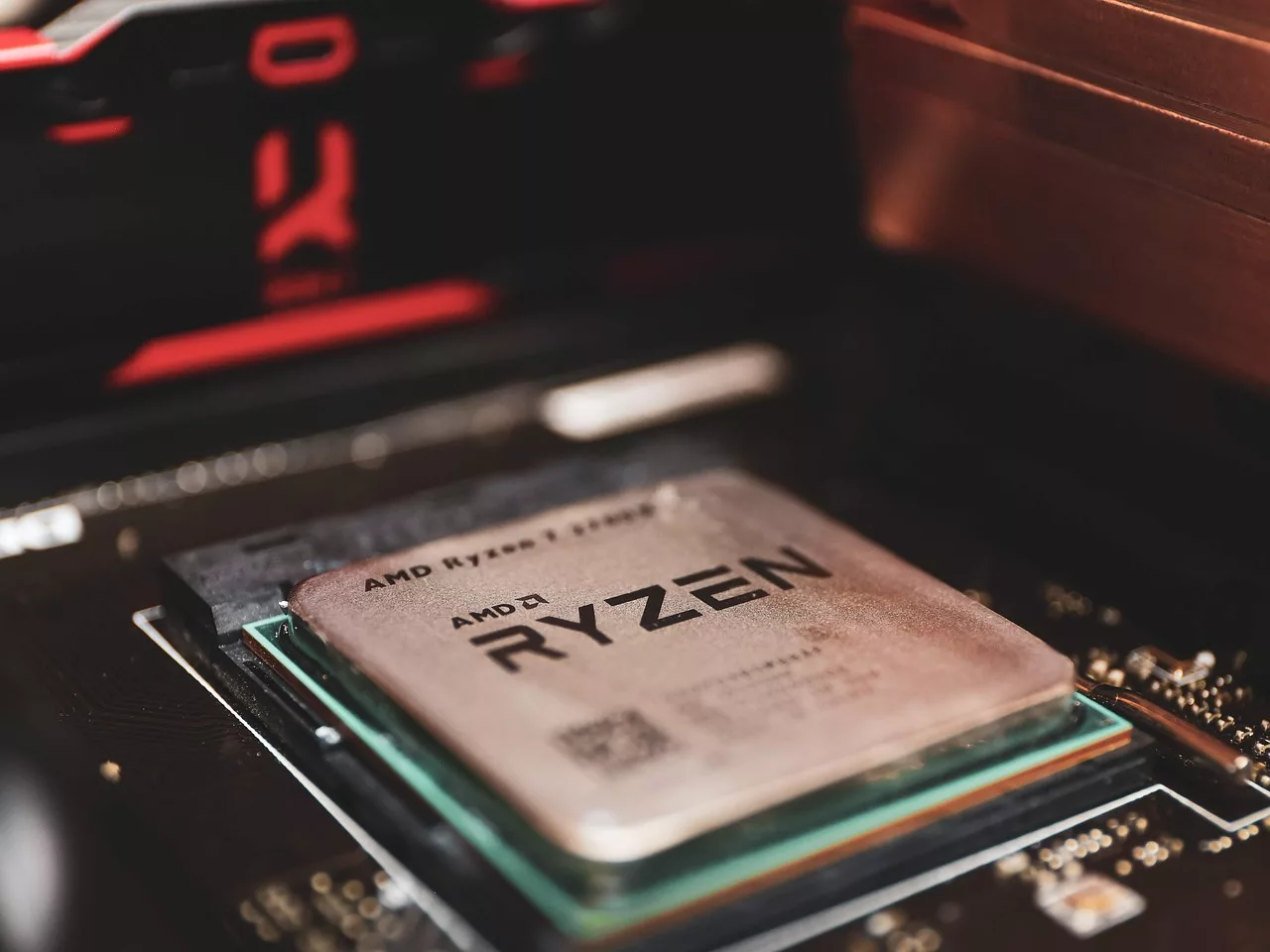The Article Tells The Story of:
- Zen 5 Performance: Up to 16 cores, 16% IPC boost, and enhanced AI capabilities.
- Flagship: Ryzen 9 9950X outperforms Intel’s Core i9-14900K.
- New Chipsets: X870E/X870 with USB 4.0, Wi-Fi 7, and PCIe 5.0 support.
- Launch: Arriving July 2024 with multiple models.
AMD Unveils Ryzen 9000 Series Processors with Zen 5 Architecture
During Computex 2024, AMD CEO Dr. Lisa Su revealed the new Ryzen 9000 series processors, powered by the advanced Zen 5 microarchitecture. Set to launch in July 2024, this lineup promises groundbreaking improvements in desktop PC performance, offering up to 16 cores and a range of technical advancements.
Zen 5 Microarchitecture Features
The Zen 5 architecture is a key highlight of the Ryzen 9000 series. AMD has introduced four SKUs, including the flagship Ryzen 9 9950X with 16 cores and a maximum boost clock of 5.7 GHz. The lineup also includes 6-core, 8-core, and 12-core models to cater to different performance needs.
Key improvements in Zen 5 include:
- 16% IPC Increase: Delivers faster processing speeds compared to Zen 4.
- Enhanced AI Processing: Features a full 512-bit wide SIMD for AVX-512 instruction sets.
- Better Memory Bandwidth: Doubles L2 to L1 memory transfer speeds.
- Wider Pipelines: Boosts data processing efficiency.
AMD retains the AM5 socket for this series, ensuring compatibility with existing 600-series motherboards and enabling easy upgrades for users.
Check Out Latest Article of AMD’s Most Powerful Gaming Tablet Could Debut Soon Published on December 19, 2024 SquaredTech
Technical Advancements and Chipsets
The Ryzen 9000 processors utilize TSMC’s 4nm process, a shrink from Zen 4’s 5nm technology, enhancing power efficiency. AMD has also introduced two new chipsets, X870E and X870, designed to support the latest technologies such as:
- USB 4.0 Ports: Standard on all X870E motherboards.
- Wi-Fi 7 Support: A significant improvement over Wi-Fi 6E.
- PCIe 5.0 NVMe Slots: Ensures ultra-fast storage options.
These chipsets also support higher AMD EXPO memory profiles, enabling faster RAM speeds than their predecessors.
Ryzen 9 9950X: The Flagship Processor
The Ryzen 9 9950X stands out with its 16 cores, 80 MB cache, and a TDP of 170W. AMD’s testing reveals it surpasses Intel’s Core i9-14900K in productivity, gaming, and content creation tasks. The processor is designed to deliver unmatched performance across diverse workloads.
Ryzen 9000 Series Launch Details
AMD plans to release the Ryzen 9000 series in July 2024 with the following models:
- Ryzen 9 9950X: 16C/32T, 5.7 GHz boost, 80 MB cache.
- Ryzen 9 9900X: 12C/24T, 5.6 GHz boost, 76 MB cache.
- Ryzen 7 9700X: 8C/16T, 5.5 GHz boost, 40 MB cache.
- Ryzen 5 9600X: 6C/12T, 5.4 GHz boost, 38 MB cache.
Although pricing is yet to be announced, AMD aims to maintain a competitive edge in the processor market.
Conclusion
AMD’s Ryzen 9000 series with Zen 5 architecture represents a significant step forward in desktop computing. With enhanced performance, cutting-edge chipsets, and AI-focused innovations, this lineup is poised to set new standards for processors. The upcoming launch further reinforces AMD’s leadership in delivering advanced technology for a variety of computing needs.


